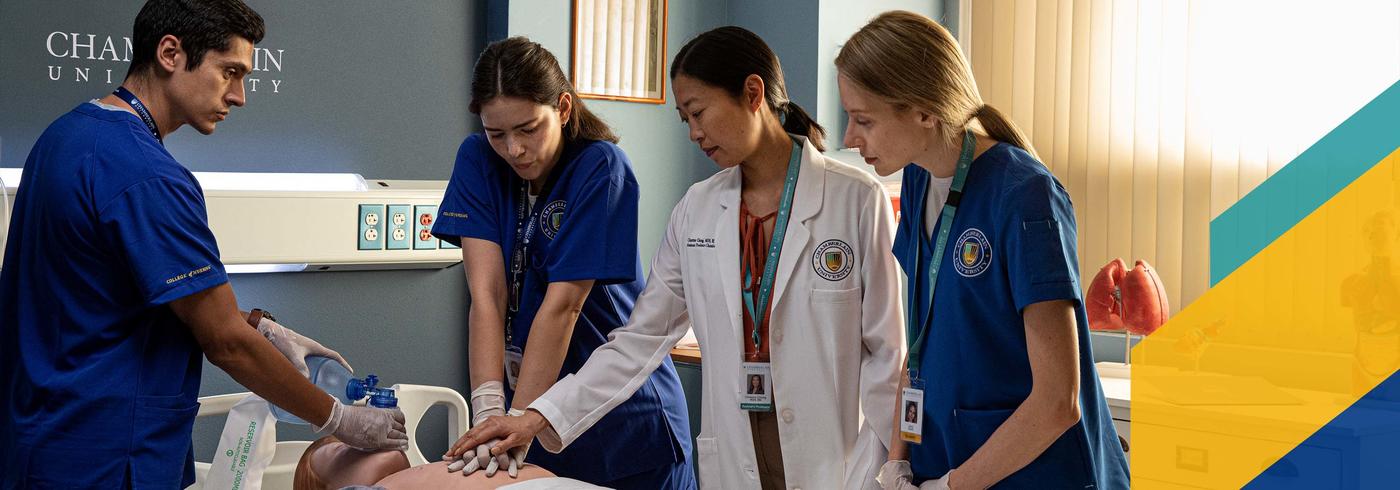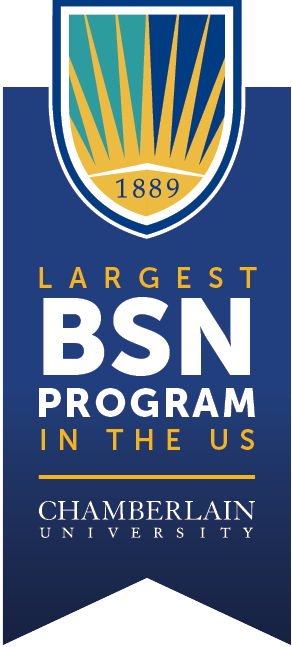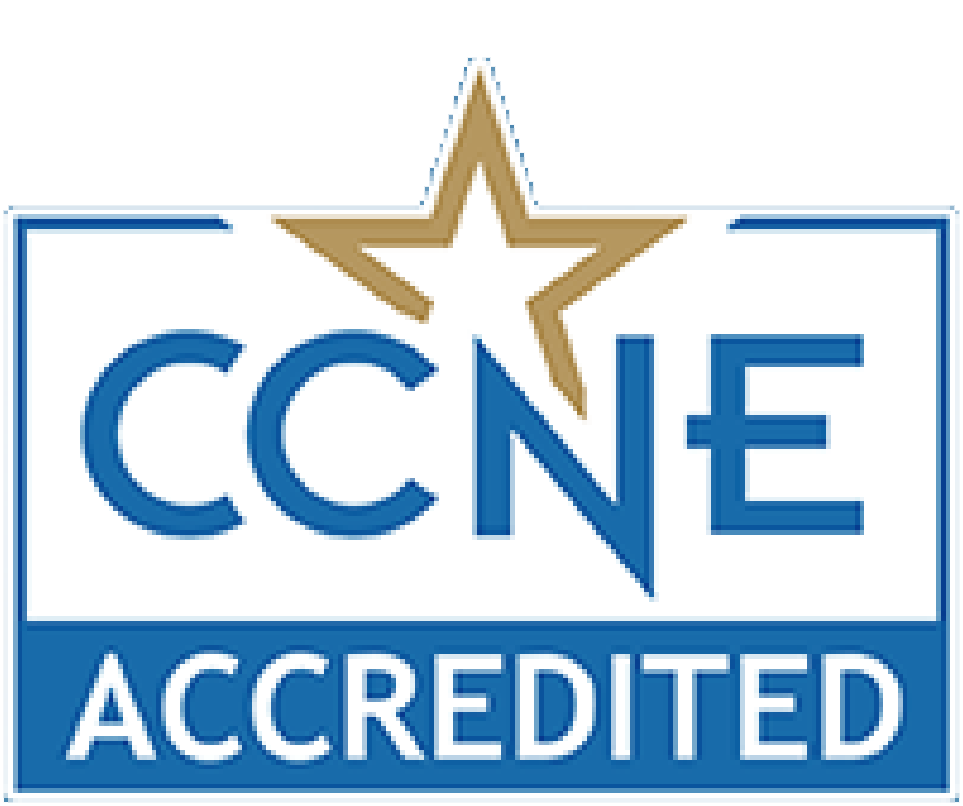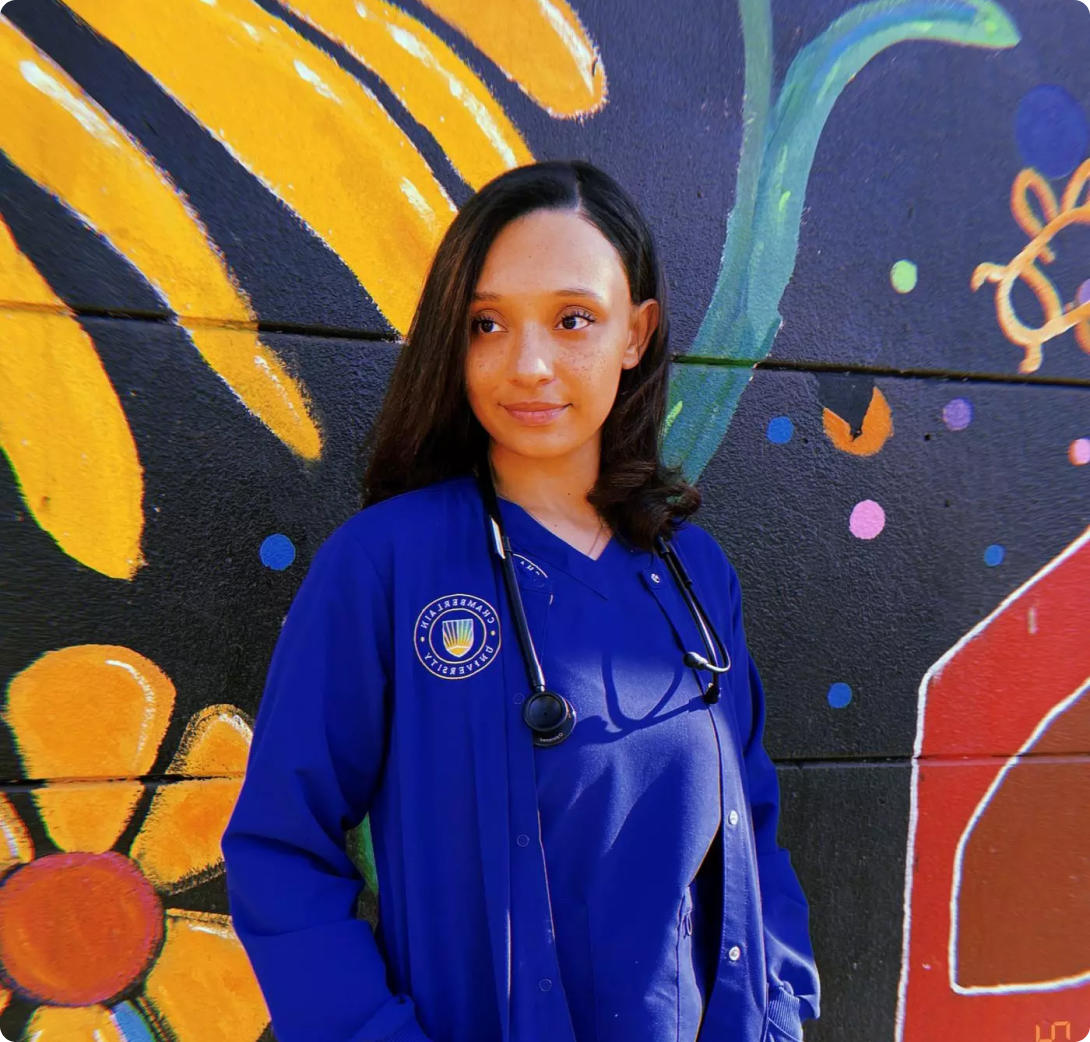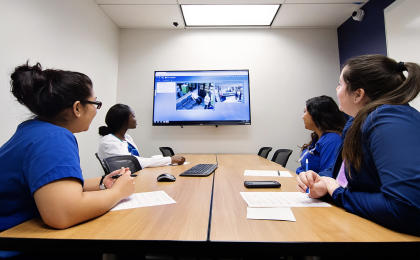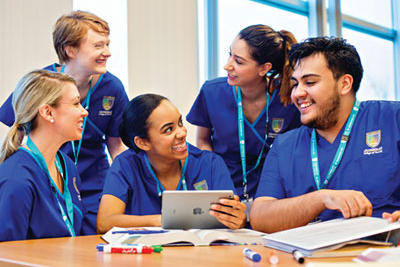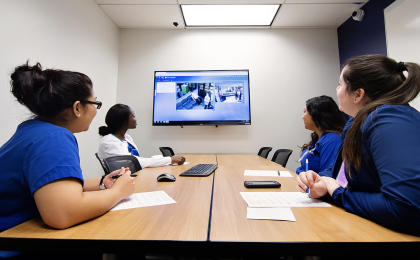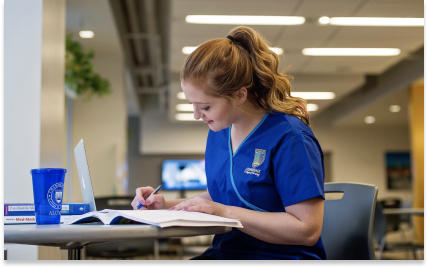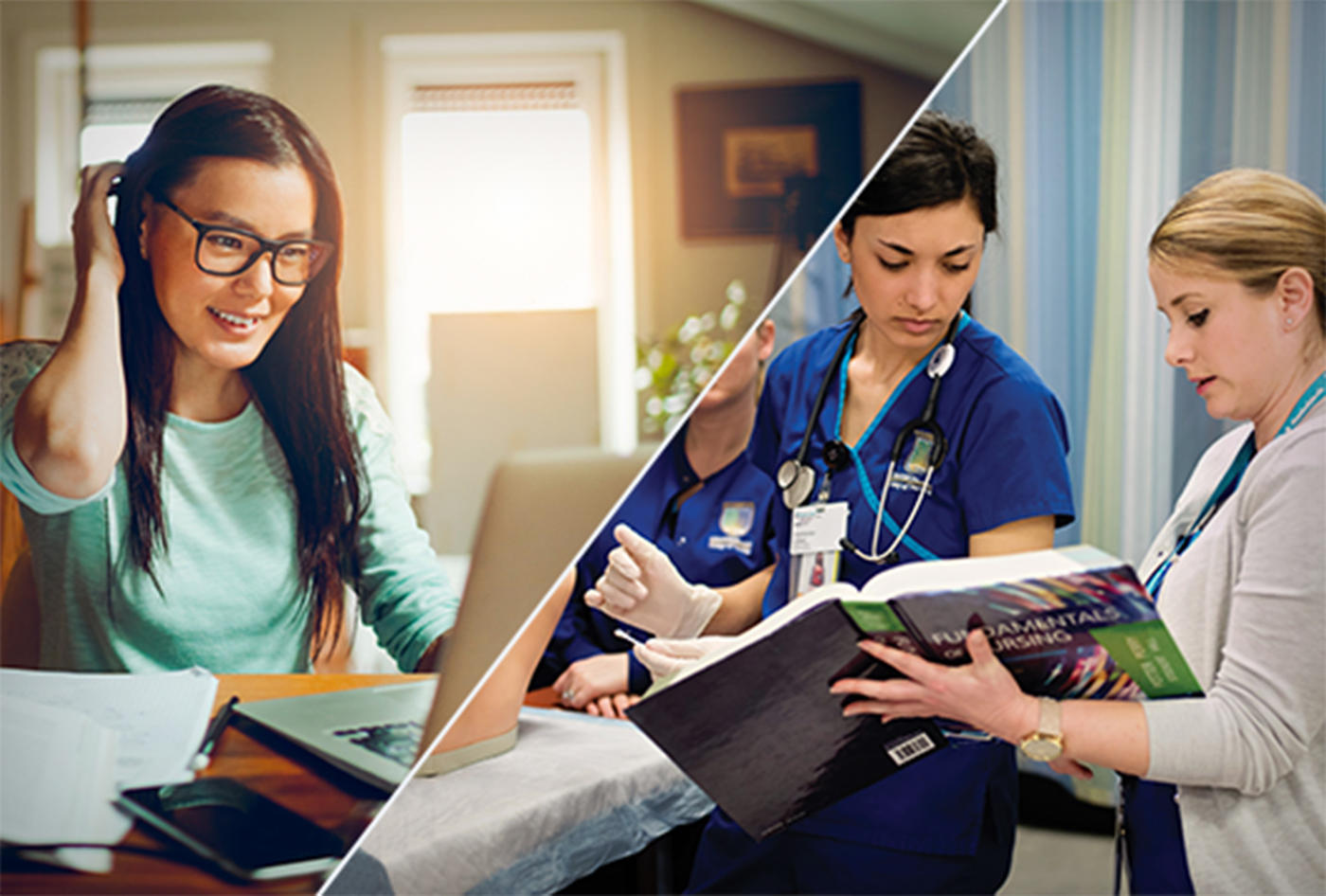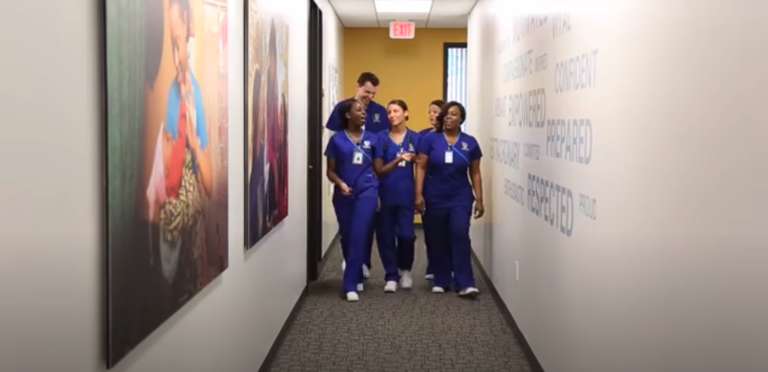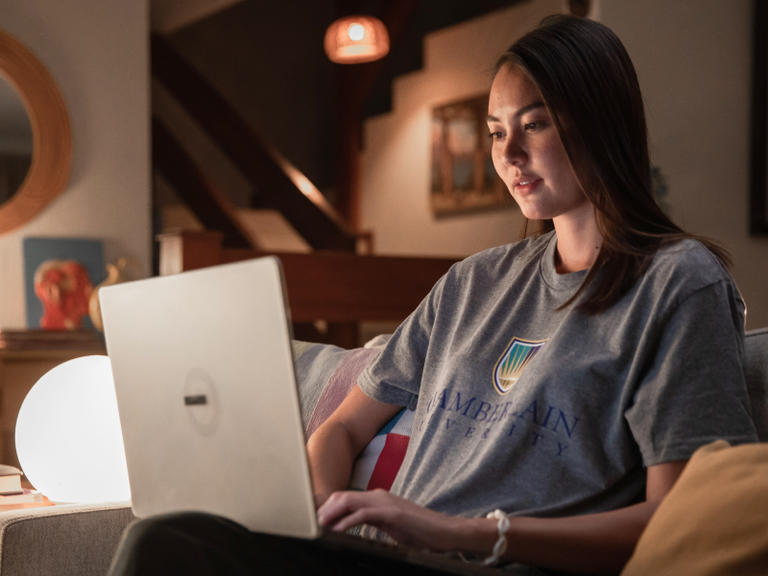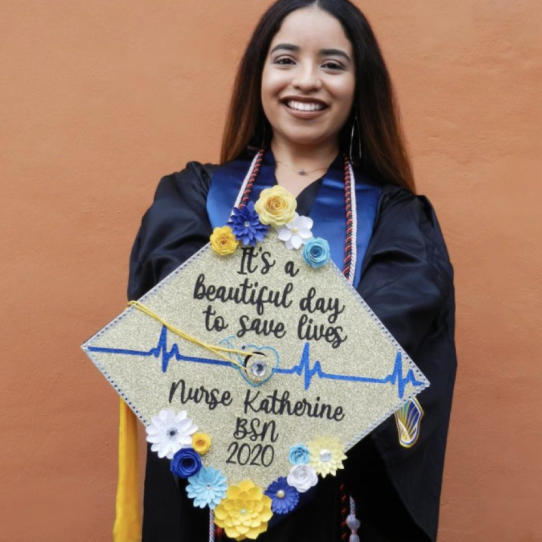3 Ways to Become An RN in Just 3 Years
Online
Offers the optimal blend of flexibility, interactivity and experiential learning.
- 100% online coursework
- Classes during weekdays
- Virtual simulation and lab experiences
- In person skills check-off prior to clinical rotations
- Clinicals occur during the last two weeks of a session and may require travel
Visit the BSN Online page to learn more.
Campus Hybrid
Presents the best of both worlds by offering traditional and online learning experiences.
- In person and online coursework
- Classes during weekdays
- In-person and virtual lab experiences
- Clinicals occur once a week
* Exceptions may occur in the hybrid standardized course delivery model by a specific campus location.
Evening-Weekend
Provides the option to attend in person classes during the evenings and weekends.
- In person and online coursework
- Classes in the evenings and weekends
- In person and virtual lab experiences
- Clinicals occur once a week
* Evening and weekend option is available in select markets. Visit the locations page to see if available where you live.
Nursing BSN Clinical FAQs
As a Chamberlain College of Nursing BSN student, you may have opportunities to experience practice settings that include large and small hospitals, long-term care facilities, community and public-health agencies, faith-based service organizations, independent practices, ambulatory care centers, public health agencies, military services (Army, Navy, and Air Force), Veteran’s Administration Medical Centers, schools, home health environments… anywhere healthcare is delivered.
All BSN nursing students begin their hands-on learning in the SIMCARE CENTER™, located on each campus. There, you’ll care for simulated patients dealing with various medical scenarios, including giving birth. You receive feedback from instructors, and grow comfortable with your nursing skills in a safe environment. Once fundamental skills have been mastered and validated, students begin clinicals.
Generally, clinicals last for the duration of the clinical course. Clinical shifts average six to eight hours, one to two days per week. The BS in nursing program has a total of 10 clinical courses.
Clinical BSN nursing classes include NR-328 Pediatric Nursing, NR 326 Mental Health Nursing and NR 442 Community Health Nursing. View a full sample BSN curriculum plan.
You will begin prepping for your clinicals through virtually stimulated patient encounters using i-Human Patients and in-home health kits. Before moving into in-person clinical experiences you will attend an in person clinical skills check-off. Clinical immersions occur over the final 2 weeks of an 8-week session at locations around the United States. Days and times are subject to change based on clinical course hour requirements and availability at a clinical partner site. Clinical location site is not guaranteed and may require travel.
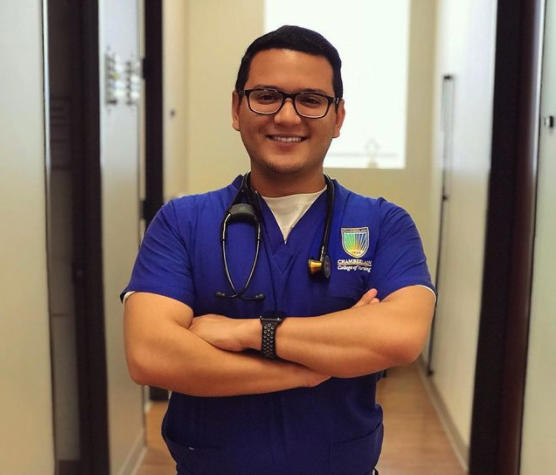
Ask a Student
What is campus life like?
“There was always an opportunity to join an organization on campus, and they did a really good job of including everyone and making their presence known. I thought it was great. There was always something going on.”
Jesse
‘21 BSN student, Houston Campus
BSN Nursing Program Locations
Attend a BSN program that works with your life
On Campus
Earn your BSN degree at one of 20+ campus locations across the United States.
Take a Peek Around Campus
Chamberlain is ready to welcome you to one of our 20+ campus locations. You can feel confident that everyone shares the same goal at Chamberlain - to see you succeed as a nurse. Our 130+ years of educating nurses means we have experience in delivering the support systems you need to complete your BSN and prepare you to take the NCLEX®.
Chamberlain Welcomes Transfer Students
Your BSN degree is closer than you think
Whether you have a bachelor’s degree in another field, or have just taken a few classes at the college level, you may be able to earn your BSN degree even faster as a transfer student than the typical three years of year-round study.
Chamberlain Bachelor of Science in Nursing FAQs
Explore frequently asked questions
Qualifying students with an LPN or LVN license have the opportunity to earn their BSN with up to 9 proficiency credits, following skills validation tests and proficiency exams. Call 877.751.5783 or request more information on this path.
Chamberlain welcomes transfer students from other institutions. A credit evaluation will tell you exactly how many courses will transfer into the BSN program. Contact admissions to get started.
You can find the total BSN program cost by campus or online option here.
Chamberlain is accredited by the Higher Learning Commission (HLC), with multiple program accreditations from the Commission on Collegiate Nursing Education (CCNE).†
BSN Program FAQs
Still have questions? Our admissions team is here to help.
A BSN degree is a Bachelor of Science in Nursing. The BSN is increasingly becoming the preferred nursing degree program, due to employer preference, higher NCLEX-RN® pass rates and improved patient outcomes.
A Bachelor of Science in Nursing (BSN) is the degree you earn. A registered nurse (RN) is a job title or the licensure you are granted through your state to practice. Read more here.
ADN stands for an associate’s degree in nursing, and a BSN is a bachelor’s degree in nursing. Both programs are pre-licensure programs that are pathways to become a registered nurse. While an ADN will get you into the workforce quicker, more forces are starting to favor the BSN degree. Find out more here: ADN vs. BSN: Explore the Difference.
This will depend on what educational path you take. An associate’s degree typically takes two years, while a bachelor’s degree in nursing program will usually take 3-4 years.
Required BSN Courses
Students are introduced to the fundamental skills of professional nursing. An introductory unit of physics provides the basis for understanding concepts such as body mechanics, positioning and mobility. The laboratory component provides practice of selected fundamental nursing skills, as well as psychomotor skills necessary for care of individuals requiring assistance with mobility, hygiene and comfort. Included are basic principles of drug administration, teaching-learning and vital-sign assessment. Students have the opportunity to develop the beginning skills of a professional nurse through experiential learning.
This course provides an overview of the basic nutrients required by the body for optimal health and wellness. The role that nutrition plays in various phases of the human life cycle and the psychological and sociological implications of food are discussed. Students use scientific thinking to question nutritional information presented in the various media and dispel any common nutrition myths. Students learn how the scientific method of inquiry is used in nutritional science and the health fields. In addition, the application of nutritional concepts to care for patients are studied. Lastly, conditions that are amenable to modification and possible cure by diet therapy and other nursing and medical interventions are explored.
Select pathophysiologic processes of disease, clinical manifestations, complications and variations in wellness will be explored. Environmental and lifestyle influences are examined as well as other risks and influences on pathophysiological processes.
This course introduces a comprehensive approach to the clinical aspects of drug therapy, which are emphasized through the use of the nursing process, life span implications and basic principles of pharmacology. The course content includes several classifications of commonly prescribed medications, as well as selected complementary and alternative drugs. Within each classification, representative or prototype drugs are selected for study in terms of their mechanisms of action and therapeutic uses. Students apply knowledge of pharmacological concepts in the context of safe and effective nursing practice, which include methods of administration, safe dosage, side and adverse effects of medications, nursing implications and medication teaching.
The focus of this course is on the needs of adult patients and their families in relation to health promotion and management of conditions that require acute and chronic care. The nursing process is used in the discussion of health alterations affecting selected life processes. Students continue their professional skill development as members of the health team. A variety of populations and settings are used in the experiential learning component of this course.
This course focuses on alterations in life processes, including the effect on the patient’s family. The nursing process is used to make clinical decisions and foster health restoration and maintenance. Emphasis on discharge planning is included. A variety of populations and settings are used in the experiential learning component of this course.
Emphasis is on the dynamics of an individual’s ability to function in society. The course focuses on content relative to anxiety, self concept, thought disorders, mood alterations, addictive behaviors, organic brain dysfunction, abuse and violence issues. It also incorporates health promotion and wellness issues such as stress management and personal growth. Therapeutic communication techniques, individual and group therapy practices and community mental-health resources are also incorporated. A variety of population and settings are used in the experiential learning component of this course.
This course focuses on family-centered approaches to maternal/newborn care and incorporates health promotion and wellness issues. The childbearing cycle, including normal experience, high-risk factors, complications and alterations are studied. Additional women’s health issues are included. A variety of populations and settings are used in the experiential learning component of this course.
Family-Centered care of children is the focus of this course, exploring issues of normal child care as well as health alterations of children from infancy through adolescence. Students participate as members of the multidisciplinary health team to provide health promotion, illness prevention, health restoration and maintenance and rehabilitative care to children and families. A variety of population and settings are used in the experiential learning component of this course.
Looking for something else?
Explore our related programs.

